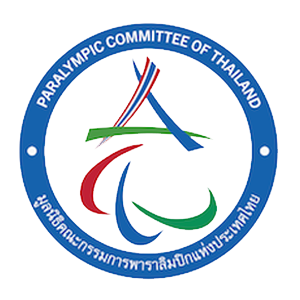
IDEF, initially an abbreviation of ICAM Definition and renamed in 1999 as Integration Definition, is a family of modeling languages in the field of systems and software engineering. They cover a wide range of uses from functional modeling to data, simulation, object-oriented analysis and design, and knowledge acquisition. These definition languages were developed under funding from U.S. Air Force and, although still most commonly used by them and other military and United States Department of Defense (DoD) agencies, are in the public domain.

Edward Nash Yourdon was an American software engineer, computer consultant, author and lecturer, and software engineering methodology pioneer. He was one of the lead developers of the structured analysis techniques of the 1970s and a co-developer of both the Yourdon/Whitehead method for object-oriented analysis/design in the late 1980s and the Coad/Yourdon methodology for object-oriented analysis/design in the 1990s.

IDEF0, a compound acronym, is a function modeling methodology for describing manufacturing functions, which offers a functional modeling language for the analysis, development, reengineering and integration of information systems, business processes or software engineering analysis.

Structured analysis and design technique (SADT) is a systems engineering and software engineering methodology for describing systems as a hierarchy of functions. SADT is a structured analysis modelling language, which uses two types of diagrams: activity models and data models. It was developed in the late 1960s by Douglas T. Ross, and was formalized and published as IDEF0 in 1981.
Bulgarian Empire may refer to:
The self-accelerating decomposition temperature (SADT) is the lowest temperature at which an organic peroxide in a typical vessel or shipping package will undergo a self-accelerating decomposition within one week. The SADT is the point at which the heat evolution from the decomposition reaction and the heat removal rate from the package of interest become unbalanced. When the heat removal is too low, the temperature in the package increases and the rate of decomposition increases in an uncontrollable manner. The result is therefore dependent on the formulation and the package characteristics.

In software engineering, structured analysis (SA) and structured design (SD) are methods for analyzing business requirements and developing specifications for converting practices into computer programs, hardware configurations, and related manual procedures.
Douglas Taylor "Doug" Ross was an American computer scientist pioneer, and chairman of SofTech, Inc. He is most famous for originating the term CAD for computer-aided design, and is considered to be the father of Automatically Programmed Tools (APT), a programming language to drive numerical control in manufacturing. His later work focused on a pseudophilosophy he developed and named Plex.

Rhett James McLaughlin and Charles Lincoln "Link" Neal III are an American comedy duo. Self-styled as "Internetainers", they are known for creating and hosting the YouTube series Good Mythical Morning. Their other notable projects include comedic songs and sketches, their IFC series Rhett & Link: Commercial Kings, their YouTube Premium series Rhett & Link's Buddy System, their podcast Ear Biscuits and their novel The Lost Causes of Bleak Creek. The duo also own a minority stake in YouTube comedy collective Smosh.
Neutral point of view may refer to:

In systems engineering, software engineering, and computer science, a function model or functional model is a structured representation of the functions within the modeled system or subject area.
The QwaQwa National Park is part of the Golden Gate Highlands National Park and the Maloti-Drakensberg Park and comprises the former Bantustan (homeland) of QwaQwa. It is approximately 60 km from Harrismith on the Golden Gate Road (R712) and formed an integral part of the Highlands Treasure Route.

The Paralympic Committee of Thailand is the national Paralympic committee in Thailand for the Paralympic Games movement, based in Bangkok, Thailand. It is a non-profit organisation that selects teams and raises funds to send Thailand competitors to Paralympic events organised by the International Paralympic Committee (IPC), Asian Para Games events organised by the Asian Paralympic Committee (APC) and ASEAN Para Games events organised by the ASEAN Para Sports Federation (APSF).

tert-Butyl peroxybenzoate (TBPB) an organic compound with the formula C6H5CO3CMe3 (Me = CH3). It is the most widely produced perester; it is an ester of peroxybenzoic acid (C6H5CO3H). It is often used as a radical initiator in polymerization reactions, such as the production of LDPE from ethylene, and for crosslinking, such as for unsaturated polyester resins.
Cambridge Movement may refer to:
Talks at Google is a global, internal talks series hosted by Google. The talks are most often hosted for Google employees before being publicly released on their YouTube channel.

Google Family Link is a family parental controls service by Google that allows parents to adjust parameters for their children's devices. The application allows parents to restrict content, approve or disapprove apps, set screen times, and more. Google Family Link requires Google accounts in order to access the app remotely.
This page is based on this
Wikipedia article Text is available under the
CC BY-SA 4.0 license; additional terms may apply.
Images, videos and audio are available under their respective licenses.








